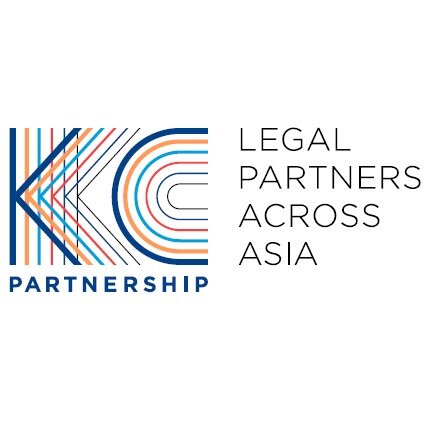Best Debt & Collection Lawyers in Harbourfront
Share your needs with us, get contacted by law firms.
Free. Takes 2 min.
List of the best lawyers in Harbourfront, Singapore
Singapore Debt & Collection Legal Questions answered by Lawyers
Browse our 1 legal question about Debt & Collection in Singapore and read the lawyer answers, or ask your own questions for free.
- Debt collection
- I am based in Singapore and hold a Singaporean passport. However, I have a debt to claim from someone in the Philippines, Lipa City, Batangas.
-
Lawyer answer by Yuen Law LLC
Thank you for reaching out to our firm. May we know the size of the claim, and how it arose?
Read full answer
About Debt & Collection Law in Harbourfront, Singapore
The field of Debt & Collection law in Harbourfront, Singapore is primarily concerned with resolving issues of unpaid debts. When debts are unpaid or disputes arise concerning the payment, creditors often resort to formal legal processes. These laws and guidelines are in place to ensure fairness and efficiency in the debt recovery process. Creditors and debtors both have rights and obligations under these laws. The objective is to ensure that debtors stay protected from harassment and undue burden, while creditors can rightfully claim their dues.
Why You May Need a Lawyer
Legal intervention may be necessary in cases where debts have turned 'bad' or where there is a dispute over the legitimacy of the debt. Often in such situations, emotions run high and it can get difficult to negotiate and reach an agreement. In other cases, individuals or businesses may need legal help to understand complex clauses in debt agreements or to understand their potential legal liabilities. It becomes especially critical when the debt is large or involves complicated issues like bankruptcy or insolvency.
Local Laws Overview
Debt & Collection laws in Singapore, including Harbourfront, are governed by the Bankruptcy Act and the Moneylenders Act. These laws protect the rights of both creditors and debtors and provide procedures for the collection of debts. They set out the conditions for legal actions, define what constitutes as unlawful debt collection practices, and lay out penalties for violations. The process may involve court-sanctioned repayment schemes, negotiation and mediation, or in extreme cases, bankruptcy or insolvency proceedings.
Frequently Asked Questions
What constitutes as an unfair debt collection practice in Singapore?
Practices such as harassment, abuse, misrepresentation, and disclosing debt information to third parties without the debtor's consent are considered unfair and are outlawed under the Moneylenders Act.
Can I go to jail for not paying my debts?
No, you cannot be imprisoned for not being able to pay your debts. However, non-payment can lead to a lawsuit and potentially result in the seizure of your asset.
What is the process for bankruptcy or insolvency in Harbourfront, Singapore?
The Bankruptcy Act details the process. It usually involves submitting a bankruptcy application to the courts, after which the court will assess the application and make a decision based on the amount of debt and the debtor's ability to repay.
What if I'm being harassed by a debt collector?
If you're being harassed, you can report it to the relevant authorities or pursue the matter legally as it contravenes the Moneylenders Act.
Can a lawyer help negotiate my debts?
Yes, a lawyer can help negotiate with your creditors to potentially reduce or restructure your debts into a more manageable repayment plan.
Additional Resources
Government websites such as the Ministry of Law and the Insolvency and Public Trustee’s Office provide a wealth of information and resources for understanding Singapore's Debt Collection laws. The Credit Counselling Singapore (CCS) is a non-profit organisation that provides free credit counselling and debt management services.
Next Steps
If you require legal assistance, it is recommended to consult with a lawyer who specializes in Debt & Collection law. They will be able to provide you with tailored advice and support throughout the process. In most cases, they will also represent your interest in any negotiation or legal proceedings, ensuring your rights are adequately protected.
Lawzana helps you find the best lawyers and law firms in Harbourfront through a curated and pre-screened list of qualified legal professionals. Our platform offers rankings and detailed profiles of attorneys and law firms, allowing you to compare based on practice areas, including Debt & Collection, experience, and client feedback.
Each profile includes a description of the firm's areas of practice, client reviews, team members and partners, year of establishment, spoken languages, office locations, contact information, social media presence, and any published articles or resources. Most firms on our platform speak English and are experienced in both local and international legal matters.
Get a quote from top-rated law firms in Harbourfront, Singapore — quickly, securely, and without unnecessary hassle.
Disclaimer:
The information provided on this page is for general informational purposes only and does not constitute legal advice. While we strive to ensure the accuracy and relevance of the content, legal information may change over time, and interpretations of the law can vary. You should always consult with a qualified legal professional for advice specific to your situation.
We disclaim all liability for actions taken or not taken based on the content of this page. If you believe any information is incorrect or outdated, please contact us, and we will review and update it where appropriate.








